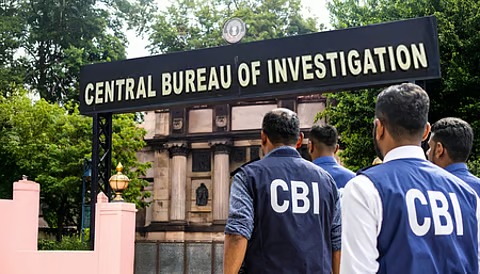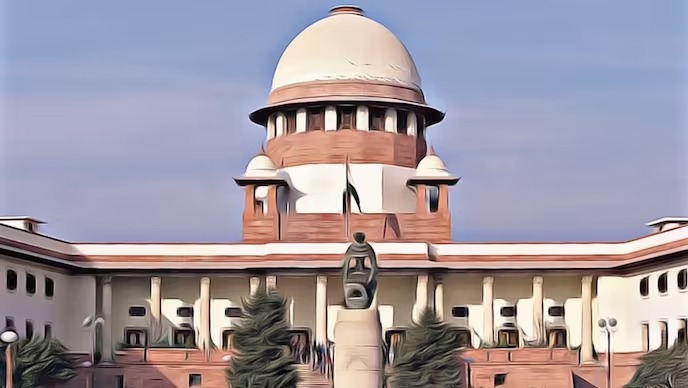Radhakrishna Rao, J.@mdashCharge has been framed against the accused 1 to 4 alleging that they were responsible for the cause of the death of the deceased. P.Ws.1 to 6 were examined on behalf of the prosecution and documents, Exs.P.1 to P.6 are marked for the prosecution and Exs.D-1 to D-5 were marked for the defence. Ultimately, the Court came to the conclusion that a case has been made out against A-1, i.e., the husband for the offence u/s 304-B I.P.C. and convicted and sentenced him to undergo rigorous imprisonment for a period of 7 years which is the minimum sentence u/s 304-B I.P.C. It is against that conviction and sentence, the appeal has been filed.
2. Sri P.Raghava Reddy, the learned counsel for the appellant, contended that the death in this case cannot be attributed to the act that has been committed in any form by the husband and the deceased might have committed suicide on her own and the reasoning that has been given by the lower Court in convicting the accused u/s 304-B I.P.C. is not correct. The marriage between the two i.e., A-1 and the deceased took place on 4-4-1988. The death is on 24-7-88. P. W.6 is the Doctor who received the requisition for post-mortem examination and on dissection, he found that the deceased consumed poison which in the ordinary course of nature can result in the death. Exs.P.3 to P.5 are taken into consideration by the medical export to arrive at the conclusion that the deceased died due to consuming the poison. The inquest panchayatdar, i.e., P.W.5, the Deputy Tahsildar at Miryalguda who conducted the inquest panchanama on the dead body of the deceased on 25-7-1988 at 11 A.M., in the presence of P.W.4 and another also came to the conclusion that the deceased died due to consuming the poison and the same has been incorporated in Ex.P.2. The inquest panchayatdars'' evidence and the evidence of the Doctor reveals that the death of the deceased is suicidal one. Whether this suicidal death is an unnatural death or not is a matter that has to be considered in a case like this. She is young in age and the circumstances that have been stated by P.Ws. 1 & 2, in particular, shows that it is an unnatural death. Even in suicidal cases, the Court has to consider whether the death is an unnatural one as it has got a bearing duly taking into account the language that has been adopted u/s 304-B I.P.C. The prosecution case is that the accused demanded Rs. 4,000/- for purchasing three sewing machines and in that connection, P.W.1 at one time made an attempt but it was not successful. A-1 wanted the money alone to be paid. On the second occasion, the deceased was sent away to her parents'' house. The accused went there and demanded the money but the same was not paid. Thereupon, the accused beat the deceased and abused her and returned back. Immediately, thereafter, P.W.1 made preparations to secure the money but on his return he found that the deceased consumed poison and then he took her to Nalgonda in the bus to the Govt. Hospital where she was declared deed. The accused was absconding from that day. P.Ws.1 & 2 are the natural witnesses who speak about the demand for the dowry and also the ill-treatment that has been received by the deceased. It has come out in the evidence of P.W.1 that A-2 advised P.W.1 not to give cash to A-1 as he might squander away the money. The evidence of P.Ws.1 & 2 also made this Court to arrive at the conclusion that there were differences of opinion between the P.W.1 on one side and the accused, A-1 on the other in connection with the receipt of Rs. 4,000/- P.W.1 wants to give that money which is part of the dowry amount for purchase of sewing machines as the accused is a tailor by profession. A-1 wanted the money alone to be paid to him and the impression that has been created is that he might squander away the money. Under those circumstances, as a shrewd father-in-law, his interest is only in the purchase of sewing machines so that it is used for the welfare of the family of his daughter and A-1. It is a case of demanding dowry and when that was not considered in the form in which A.1 wanted, he abused his wife four days prior to her death which ultimately made her to commit suicide. There is no infirmity in the evidence of P.Ws.1 & 2. If they have got any animosity, they would have stated something against A-2 to A-4. But they are fair enough to say that A-2 to A-4 had nothing to do with the affairs of A-1. Even negotiations for marriage were held by P.W.1 withA-1 and the owner of the tailoring shop where he was working, namely, Jani Pasha. Not implicating and stating against A-2 to A-4 indicates the truthful nature of the version that has been spoken by P. W. 1, in particular. So, believing the evidence of P.Ws. 1 & 2 and the medical evidence, this Court finds that it is a case of dowry death. The presumption u/s 113B of the Indian Evidence Act, 1872 as follows:-
"113-B Presumption as to dowry death:- When the question is whether a person has committed the dowry death of a woman and it is shown that soon before her death such woman had been subjected by such person to cruelty or harassment far, or in connection with, any demand for dowry, the Court shall presume that such person had caused the dowry death: Explanation: For the purpose of this Section "Dowry death" shall have the same meaning as in Section 304-B of Indian Penal Code (45 of 1860)"
3. In view of the presumption, this Court feels that it will attract the ingredients of Section 304-B I.P.C. The ingredients of Section 304-B I.P.C. have been duly complied with in this case as the deceased woman''s death occurred otherwise than under normal circumstances, and within seven years of her marriage due to the result of the cruelty and harassment by her husband in connection with the payment of dowry. Each and every case has to be considered whether that act has been intended to cause harassment or not. One set of circumstances that have been taken in another judgment cannot be taken into account as the intention of that person or the mind of the lady who committed suicide. A sensitive lady would react when she is abused by her husband or his relations, but the something cannot be attributed to another lady who is not sensitive and dull-witted. In this case, the deceased was young in her age and she stated to her parents that the accused has threatened her and she might have thought that her parents wer3 not in a position to pay the amount demanded, so she committed suicide.
4. Sri Raghava Reddy, the learned counsel for the appellant contended that the words, "soon before" must mean immediately and the incident that took place four days prior to her death, cannot be taken into account. The words, "soon before" have to be take into account where the act has been done within a short time. "Soon before" does not mean immediately. It must mean within a short time before her death. That time factor also differs from person to person. If a sensitive lady is there, she might commit suicide immediately but another lady with a less degree of sensitivity, might taken more time. So the language, "soon before" occurring in the Section 304-B I.P.C. cannot be interpreted to mean immediately before her death. In the case, the incident has happened four days prior to her death. There was harassment and threatening by the accused and that might have caused her to make up her mind which ultimately translated into action and execution by taking the poison on the fourth day. So, the lower court assessed the evidence correctly.
5. It is contended by Sri Reghava Reddy that the offence will fall under Scc.306 I.P.C. If it is proved that it is a case of dowry death whereunder a presumption u/s 113B of the Evidence Act can be drawn, that case cannot be fallen u/s 306 I.P.C. If it is not a case of dowry death and if it is a case of harassment which ultimately resulted in suicide then Section 306 in the case of death or the ingredients of Section 498A I.P.C. are applicable. In this case, the deceased died within four months from the date of her marriage in connection with the demand of dowry. So, the view that has been taken by the lower court is correct. The criminal appeal is dismissed. The conviction and sentence passed by the Sessions Court are confirmed.

